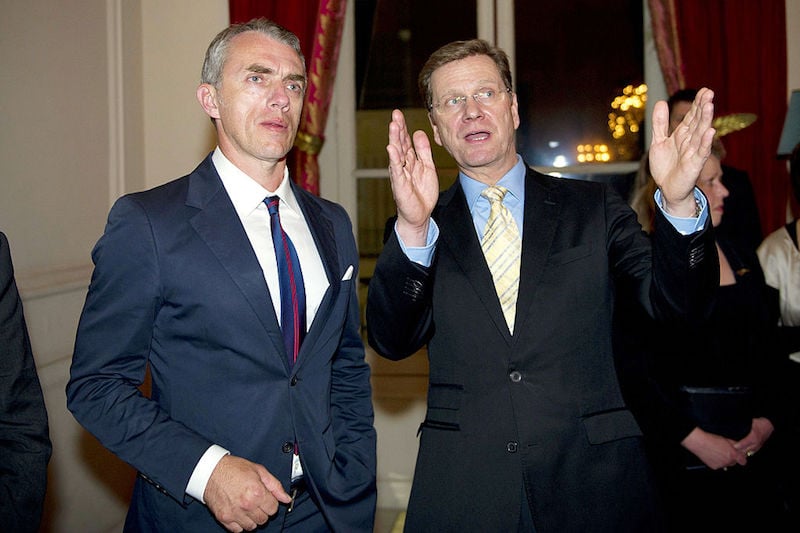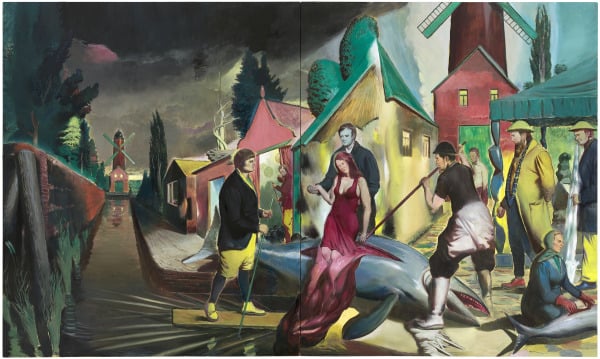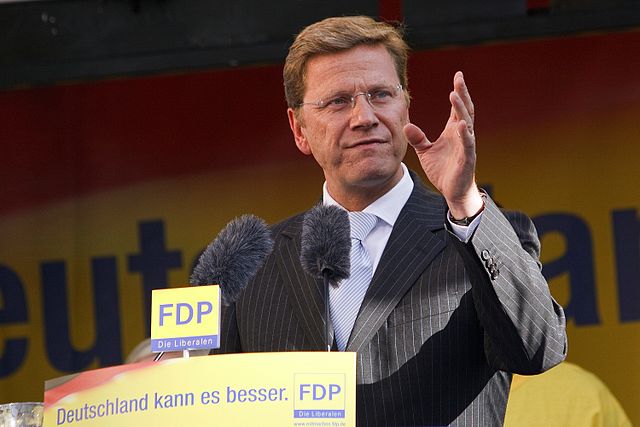People
Former German Foreign Minister and Collector Guido Westerwelle Dead at 54
He brought art into the political mainstream.

He brought art into the political mainstream.

Henri Neuendorf

Germany’s former foreign minister Guido Westerwelle has died of cancer at the age of 54, his foundation announced. Aside from being the first openly gay leader of a German political party, Westerwelle was also an avid art collector and supporter of German culture.
According to German media, Westerwelle was diagnosed with acute myeloid leukemia and died of complications resulting from a bone marrow transplant. He is survived by his long-term partner Michael Mronz, with whom he entered a civil partnership in 2010.
Westerwelle became leader of the neo-liberal FDP in 2001 aged just 39. Under his leadership the party formed a coalition government with the conservative CDU in 2009 and Westerwelle was appointed foreign minister, the BBC reported.

Neo Rauch, Der Blaue Fisch (2014). Courtesy David Zwirner.
Two years later he resigned as party leader after poor state election results. Westerwelle retained his post as foreign minister until federal elections in 2013, when the FDP failed to reach the five percent threshold required for parliamentary representation for the first time since 1949.
As a politician and art collector, Westerwelle had a reputation for introducing cultural themes into the mainstream political discourse.
“There is compelling link between the economic success of a country and cultural diversity and intellectual freedom,” he said in a 2007 interview with the German daily Die Welt. “Only in a culturally-engaged society can exciting art and creativity be translated into economically useful ideas.”
He also vehemently defended the German government’s substantial subsidization of culture, calling them “investments into the future of our country.”

Guido Westerwelle at an election rally in Hamm, Germany in 2009. Photo: Dirk Vorderstraße.
By his own telling, Westerwelle started collecting art as a teenager when he bought a print by the writer and artist Günter Grass. He said he later purchased screen prints by Jörg Immendorff, and was an early buyer of Leipziger Schule artists such as Neo Rauch and Norbert Bisky.
In his interview with Die Welt he said his interest in art is “not only a passion reserved for holidays. It is the perfect contrast to professional life and complements the mind and spirit.”
Westerwelle’s death means that Germany has lost not only accomplished politician and important gay rights icon, but also an avid supporter of cultural discourse in politics.